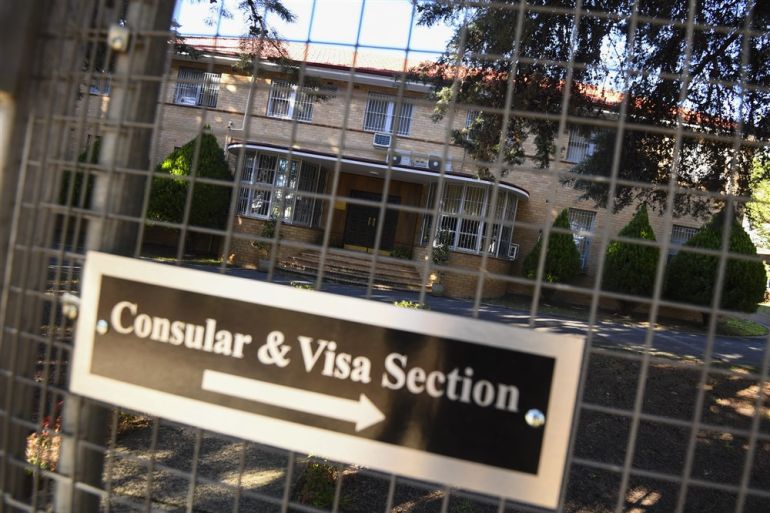Australia uncovers Russian espionage ring, expels spies: Report
Russian spy ring operated in Australia for 18 months before it was uncovered and its activities broken up by Australian intelligence organisation, report says.

Australia has exposed and quietly expelled a large Russian spy ring whose members were posing as diplomats, a local newspaper has reported just days after Australia’s intelligence chief revealed that his agency had scored a major counterespionage success.
The spy ring comprised purported embassy and consular staff as well as other operatives using deep-cover identities, The Sydney Morning Herald reported on Friday, citing unnamed sources with knowledge of the operation.
Keep reading
list of 4 itemsAustralia strips Chinese-made security cameras from defence sites
Another Australian ministry to remove Chinese-made cameras
Australia warns of foreign surveillance operations, names Iran
The ring had operated in Australia for 18 months before it was uncovered and its activities were broken up by the Australian Security Intelligence Organisation (ASIO), the country’s main domestic spy agency, the newspaper reported.
The Russian spies were quietly forced out of Australia over the past six months with their visas not renewed or cancelled, the newspaper reported. There were concerns that publicly expelling the spies could lead to retaliation by Moscow against diplomats and other Australians living in Russia.
The Russian embassy in Australia had not responded to a request for comment on Friday.
ASIO was originally established in 1949 to probe the suspected leak of Australian government secrets to the then-Soviet Union, according to the Sydney Morning Herald.
Exclusive: Fake Russian diplomats revealed as heart of ‘hive’ spy ring in Australia
— The Sydney Morning Herald (@smh) February 23, 2023
On Tuesday, ASIO’s secretary-general of Security Mike Burgess described the uncovering of a spy network at the launch of his agency’s annual report. Though not naming the country involved, Burgess had said ASIO “detected and disrupted a major spy network”, which he likened to a “hive” as it was bigger and more dangerous than a “nest” of spies previously disrupted.
Precise numbers of those exposed as spies have not been reported.
“Proxies and agents were recruited as part of a wider network. Among other malicious activities, they wanted to steal sensitive information,” Burgess said in ASIO’s annual report on threats posed to Australia.
“It was obvious to us that the spies were highly trained because they used sophisticated tradecraft to disguise their activities,” Burgess added.
ASIO “removed them from this country, privately and professionally,” he said.
Australia’s Prime Minister Anthony Albanese would not say whether the spy network that ASIO had disrupted was Russian.
“I don’t comment on national security briefings, but I just say that ASIO do a very good job in defending Australia’s national interest and they have my absolute confidence and support in doing that job,” Albanese told reporters.
Before Albanese was elected to government in May last year, he had called for Russian diplomats to be expelled from Australia in retaliation for the invasion of Ukraine.
Albanese spoke at length on Friday about the war in Ukraine, describing Russia’s actions as an “illegal and immoral invasion”, Australia’s Nine News network reported.
“There is no question that war crimes have been committed in Ukraine,” he said, according to Nine News.
He also called on Russian President Vladimir Putin to “stop this war now”.
“No one is threatening Russia. No one is threatening Russia sovereignty,” he said.
“There is no need for you to continue this war, which is causing damage not just to the people of Ukraine but to those Russian soldiers who are being sent to the front line.”